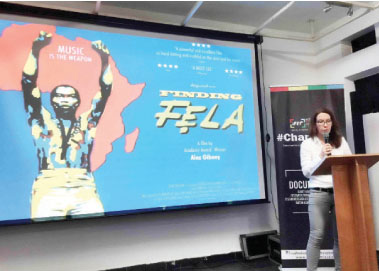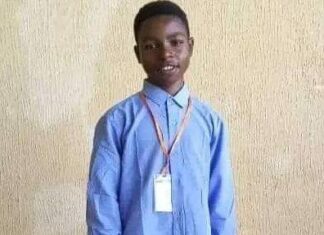Jane Mote, a former senior vice president of Global Channels for BBC Worldwide and director of Factual and Lifestyle for UKTV, has said that we have a responsibility to document the world honestly. She was giving the keynote at this year’s iREPRESENT International Documentary Film Festival (iREP 2016), which held in Lagos from March 24 to 27.
“We have a responsibility to document the world honestly and to ask the questions that get us nearer to the truth. I passionately believe everyone should own their own stories. They are who we are. And they can change the world. Stories are as central to our lives as eating and sharing food. They are part of what defines us and our cultures. They are nourishment for the human spirit,” she stated.
Mote said the idea for Fair Filming came to her after nearly a decade of supporting Ugandan filmmaker, Carol Kamya, in training young Ugandans to give them the tools of the documentary trade.
“Carol had trained on a scheme I’d set up at BBC London to try to attract more diverse talent into the media and knew that similar training in Uganda would have an even bigger impact,” she recalled.
However, after many visits to Uganda, she said, she had an uncomfortable feeling that some Western filmmakers were continuing with the traditions of their countries’ colonial pasts and not respecting the legacy of their actions or giving anything back.
Saying that images are powerful and wrongly used can create false stories that shape generations of views, she told the interesting story of Bayata, chosen to give a bouquet to a visiting Queen of England to Uganda who had to wait 50 years to truly express herself about the encounter.
Her succinct and educative presentation went on to list the documentaries that shaped her life, hence every documentarian should see to include Errol Morris’ The Thin Blue Line, The story of the Angola 3 and Gasland by Josh Fox.
Others are Virunga, Call me Kuchu, The Look of Silence, Finding Fela, The Supreme Price and Super-Size Me.
Mote, who is currently the media consultant for TV channels and digital media companies, including Turner Broadcasting, Discovery, BBC Worldwide, London Live, The Africa Channel, Whickers World Foundation and One World Media, was among the many international guests that attended the festival whose hub was Freedom Park, Lagos.
Among the other guests who attended the festival with the theme: ‘Change… Documentary Films as Agent Provocateur’ were Andy Jones, Barbara Off, Julian Reich, Manthia Diawara and Niyi Coker. Others are: Onye Ubanatu, Paul Reith and Steven Markovitz.
Some of the over 30 films that screened at this year’s edition included: Negritude: A Dialogue Between Soyinka and Senghor (52min, Mali/USA, 2015; Dir – Manthia Diawara), Ota Benga (60min, USA, 2015; Dir – Niyi Coker), The Revolution Won’t Be Televised (74min, Senegal, 2016; Dir – Kim Bartley, Donnacha O’Briain), The Democrats (100min, Zimbabwe, 2015; Dir – Camilla Nielsson), The Drills of Afi Mountain (11min, UK, 2015; Dir – Tom Richards), I Shot Bi Kidude (105min, UK, 2015; Dir – Andy Jones), Low Season (41min, Germany, 2015; Dir – Madeleine Dallmeyer), Silent Tears (30min, Nigeria, 2015; Dir – Ishaya Bako) and Warrior Father King (85min, Germany; Dir – Julian Reich)
Executive Director/co-Founder, Femi Odugbemi, in his opening address, said that this year the festival continues with the framework that has powered the conversations at iREP since its inception – ‘Africa in self-conversation’.
He said that an important strand of that conversation forms the theme of this year’s edition.
“Simply put, Change is about connecting our emerging vibrant cinema and creative industries to the realities of our communities. It is about impact filmmaking. It is about embracing the power and promise of documentary to do more than archive history, but to facilitate history. We are delighted to present close to 50 films in three venues that show in different ways the essence of this theme,” he said.
As is tradition, the festival ended with a Committee for Relevant Art (CORA)Stampede with the theme: ‘Change: Documentary and Creative Freedom’.

- Advertisement -
- Advertisement -
Must Read
UTME: 15-year-old Kwara public school student scores 95 in maths, 362...
A student of Government Secondary School Omu Aran in Kwara State, Olukayode Olusola, finished this year’s UTME with...











